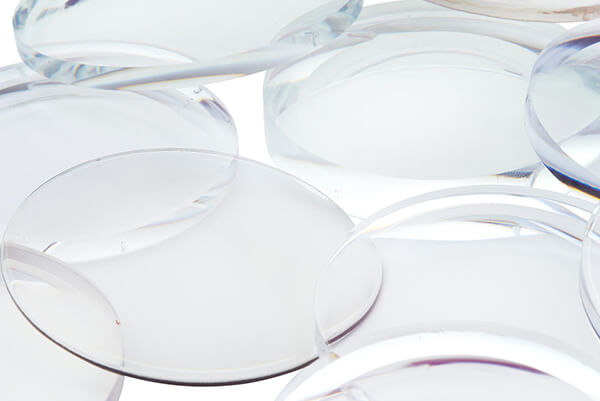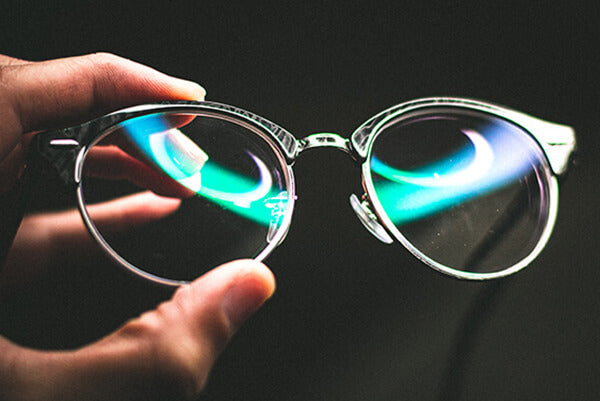The world of lens coatings is diverse, but that doesn't mean choosing the right coating for you is difficult. Lens coatings offer individually tailored solutions to common problems encountered by spectacle wearers, including eye conditions related to ultraviolet (UV) light, lens scratches, excessive glare, and more.
Anti Scratch Coating
Imagine just buying your favorite pair of glasses and scratching them in a few days. Not only does this look bad, but if that scratch is right in the center, your vision will suffer.
Anti-scratch coatings are suitable for all types of lenses as they enhance and extend the life of the lens. The coating also makes the lenses harder, which can be helpful if the glasses are dropped on the floor or subjected to any kind of physical stress. It's important to remember that while these coatings resist scratching, they don't completely prevent it from happening.
When you don't need to use your glasses, don't leave them lying around. Storing your glasses in a case and cleaning them with a fiber cloth will help reduce the chance of scratching your lenses. All ANRRI lenses include a scratch resistant coating at no additional cost.

UV Protective Coating
UV (ultraviolet) exposure is known to cause damage to our bodies. Overexposure to UV rays is thought to contribute to the development of certain eye diseases, such as cataracts, macular degeneration. At ANRRI, all of our lenses are UV protected with no additional coating or extra cost.
Anti-Reflective Coating
If you read a lot, work on a computer, or drive at night, anti-reflective coatings (ARCs) can make those tasks more enjoyable—and safer to drive, as they help reduce glare and halos from headlights and streetlights.
This thin, multi-layer coating, also known as an "anti-glare" coating, works with any lens material. As an added bonus, anti-reflective coatings tend to make eyeglass lenses look more flattering on the face because they reduce surface reflections, resulting in a crisp, clear lens appearance in photos and people.

Blue light filter
Now that everyone has entered the digital age, we will frequently use smartphones, tablets, desktop computers and televisions. Blue light comes from the sun, artificial lighting and our digital devices. It is associated with symptoms such as dry eyes, blurred vision, and disrupted sleep. So, another lens option to consider is one with blue light blocking technology. ANRRI's blue light lenses incorporate blue light blocking technology. This unique feature can enhance blue light absorption.

Light Responsive
Light responsive lenses remain white and cut clear indoors. It begins to darken when exposed to UV light (both direct and indirect light), then gradually returns to transparent indoors. The degree of darkness and the speed of transition depend on the degree of UV exposure and temperature.
Sunglasses Tint
Gray sunglasses lenses are a very popular lens shade because they are suitable for cloudy and sunny days and provide an anti-fatigue effect. Depending on the amount of light that can pass through, tinted lenses can reduce the brightness and discomfort caused by glare. (Tinted lenses don't eliminate glare, they just make it less intense.) Gray lenses have the added benefit of seeing the color of objects in their purest form. At ANRRI, all our lenses come with UVA/UVB ray protection. (We will also default to gray.)







































